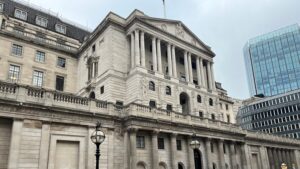The Consumer Prices Index surged to 2.9% last month, matching May’s four year high and rising from 2.6% in July.
Inflationary pressures were the most apparent in clothing and footwear prices, which reached a record 4.6%, as well as rising petrol and diesel prices.
But commentators were quick to note that August’s inflationary highs will likely be unsustainable later in the year, with most predicting just one more month of rising prices as the effect of Brexit-induced sterling weakness drops out of the reported CPI figure.
Beyond the currency effect, there are not many underlying inflationary pressures, argued Hargreaves Lansdown senior economist Ben Brettell.
“Labour costs are the main factor in domestic inflation, and growth here remains below long-term averages,” he said.
Meanwhile, he added: “Productivity growth is sluggish, and technological changes look to be suppressing wages, with the likes of Uber, Amazon and Netflix disrupting traditional industries.”
There is also a clear demographics issue, as baby boomers retire in droves and the next generation, saddled with debt, struggles to get on the property ladder and pay for cars and other consumer goods like their predecessors.
“All in all, I see more deflationary forces than inflationary in the world economy at present,” Brettell said.
Brown Shipley’s deputy chief investment officer and senior fund manager Alex Brandreth agreed that the threat of deflation was a real possibility.
He said: “Over the long term, inflation is rarely a country-specific phenomenon, especially for developed, open, market economies. Global inflation is running below expectations and there is a low inflation phenomenon that has immersed the global economy.
“The combination of this along with high levels of debt, creates the threat of deflation – the stuff of nightmares for central bankers – and explains why they remain so cautious to ‘normalise’ monetary policy at present.”
Brettell concurred that the current lack of inflationary pressures means that the BoE is off the hook as far as a rate hike is concerned, allowing “the MPC to remove the sticking plaster of ultra-low interest rates as slowly as they like”.
However, this does not mean consumers can or should forget about inflation, said Thomas Wells, manager of the Smith & Williamson Global Inflation Linked Bond Fund.
“History tells us that the impact of inflation on consumers tends to be lagged, i.e. companies will try to absorb some of the pain before passing on price hikes to consumers,” Wells said.
“Moreover, the broad CPI readings may bear no resemblance to the more severe level of real income erosion that is suffered by some individuals, particularly those living on fixed incomes.”
And at the margins, Wells cautions that “the hurricanes in the US also pose some modest short-term global inflation risks if energy and gasoline supplies are disrupted”.







